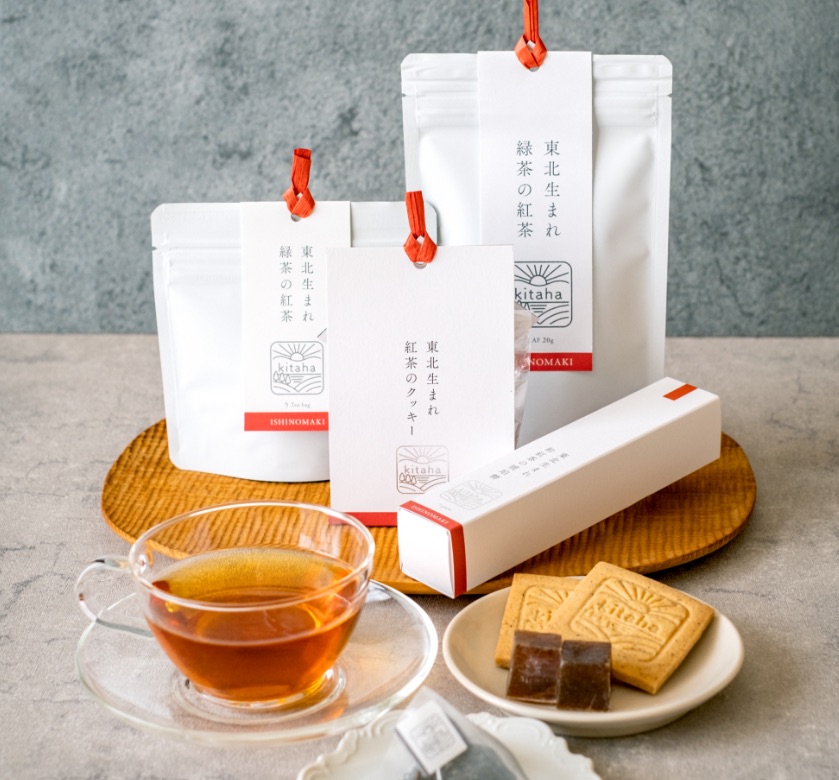Japan once produced copious black tea – enough to be exported. Kitaha Japanese black tea is reviving the country’s black tea tradition and in so doing passing the skills of monocha agriculture to future generations.

Reborn After Devastating Quake, Kitaha Breaks New Ground
Kitaha was born in 2017 in Miyagi, from a wish to revitalize the Tohoku region with Japanese black tea.
Kitaha Tea writes, “The idea has is its roots in a policy conceived over 400 years ago by a famous Sendai Domain lord who aimed to ‘build up the region with home-grown industry.’ ”

The Kitaha Tea Store opened in Ishinomaki, Miyagi in 1972, a rarity in the Tohoku region. region. “Our store, which was destroyed by the tsunami following the Great East Japan Earthquake, has been able to stay in business thanks to the support of both locals, and people from all over. As members of the community, we strive to be a tea store that spreads smiles with tea,” writes Kitaha.
The company explains that Kitaha products are made with monocha tea grown in Ishinomaki, Miyagi. “Monocha is said to have originated 400 years ago, when Date Masamune promoted tea cultivation in the feudal period as a means of developing the region. Although it was once the most cultivated variety of tea in Japan, only one producer of monocha remains. The tea is notable for its mild flavor, characteristic of tea leaves grown in cold climates. Recently, in recognition of monocha’s long history, there have been numerous local efforts to preserve and promote the tea,” according to Kitaha.
“Japan once produced copious black tea – enough to be exported. In addition to reviving the Japanese black tea tradition, we also wanted to pass monocha on to future generations. With these aims in mind, we created Kitaha Japanese black tea in 2017, six years after the Great East Japan Earthquake. Relying on the wisdom and expertise of many people, we strive to become a tea brand which symbolizes Tohoku’s resilience,” according to the company.
Kitaha sells its tea at the local co-op, department stores and in Sendai at the Standard Market, Ito Yokando and Tokyu Hands in Sendai.
A link to share this post with tea friends and colleagues.
Subscribe to the Tea Biz newsletter and view archive
Subscribe and receive Tea Biz weekly in your inbox.

